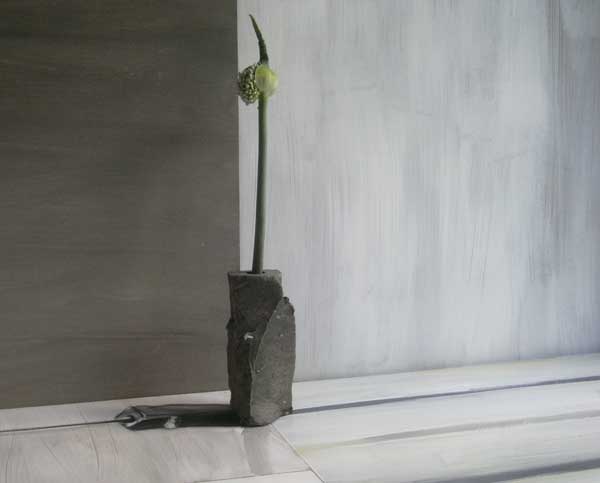Last week after my daughter had been home from college for a week she began to strip the collage of high school images from her cabinets. She had collaged layers of photos, quotes, and drawings; a secret code of who she truly was or reminders of what she wanted to be. As the images came down, recycled into notebooks or trashed, she let aspects of fashion and personal history shift in a search of simplicity. She is looking for a cleaner surface, one that she can leave behind without fear of what the layers and erasures might say.
 I once had a visitor tell me that my work looked like it spoke a secret code. I was intrigued and tried to say that I was speaking the language of pottery. My pottery dialect is a mix of historical knowledge, material sense, experience of the modern world, experiments with dreams and a desire to eloquently simplify.
I once had a visitor tell me that my work looked like it spoke a secret code. I was intrigued and tried to say that I was speaking the language of pottery. My pottery dialect is a mix of historical knowledge, material sense, experience of the modern world, experiments with dreams and a desire to eloquently simplify.
"Studio craftspeople often find themselves working at an intricate intersection of conceptual content, material skill and an appreciation for ambiguity. Which is why this seems to be the time for those engaged with craft to show how their work is, in fact, a process of facing, rather than avoiding, complexity." --The Cult of Simplicity, Akiko Busch
 I once had a visitor tell me that my work looked like it spoke a secret code. I was intrigued and tried to say that I was speaking the language of pottery. My pottery dialect is a mix of historical knowledge, material sense, experience of the modern world, experiments with dreams and a desire to eloquently simplify.
I once had a visitor tell me that my work looked like it spoke a secret code. I was intrigued and tried to say that I was speaking the language of pottery. My pottery dialect is a mix of historical knowledge, material sense, experience of the modern world, experiments with dreams and a desire to eloquently simplify."Studio craftspeople often find themselves working at an intricate intersection of conceptual content, material skill and an appreciation for ambiguity. Which is why this seems to be the time for those engaged with craft to show how their work is, in fact, a process of facing, rather than avoiding, complexity." --The Cult of Simplicity, Akiko Busch